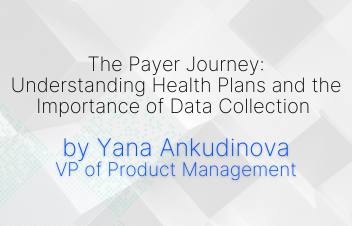Managing laborious payer processes is one of the most cumbersome operational challenges for hospitals and health systems. From initial claim submission to filling additional documentation requests, and responding to payer audits or denials, healthcare provider organizations dedicate significant time and resources to collaboration with payers.
I recently had the pleasure of sitting down with Beth Friedman, Senior Partner of FINN Partners, on FINN Voices, part of Healthcare NOW Radio. We discussed the tumultuous payer-provider relationship and how MRO uses automation to bridge the gap between these two parties. We also explored new data optimization opportunities within the healthcare sector and the significance of payer exchange in streamlining revenue cycles. Here are the takeaways from our conversation.
The Cumbersome Payer Process
A recent Modern Healthcare article stated that the one thing hospitals and health systems want most from their revenue cycle vendors is help with payer processes. Here are four well-documented pain points.
- Reimbursement: Unlike other industries where services are promptly reimbursed, providers often wait 30-90 days to determine if and how much they will be paid.
- Prior Authorization: Prior authorizations are frustrating and administratively burdensome for providers. Despite the high approval rates (80% to 90%), this dysfunctional game of “Mother May I” introduces unnecessary friction and complexity.
- Data Exchange: Value-based care arrangements require greater data exchange between providers and payers. The ability to share and consume the correct data is vital to success under VBC contracts. Further, payers rely on providers’ clinical data to calculate risk adjustments, submit HEDIS reports, and vie for Star ratings. These demands put providers under immense pressure to fulfill payer requests for data accurately, efficiently and within tight time constraints.
Automating information exchange reduces much of the administrative burden and both payers and providers benefit when data is shared digitally. MRO is committed to innovating the payer-provider relationship through our new clinical data exchange platform (CDXP).
Payer Exchange: Automating Data
Our Payer Exchange solution combines new automation and proven health information expertise to meet payer demands. We partner with provider customers to manage surges in payer requests for information and ensure payers receive the right data, formatted correctly, and at the right time. MRO’s proven legacy of protecting patient privacy ensures all patient data exchanged remains secure and compliant.
This intelligent automation process reduces the administrative burden on healthcare providers and enables them to respond to high-volume payer requests with accuracy and speed. And as healthcare data exchange capabilities continue to evolve, MRO opens new doors to data optimization.
Realizing the Full Value of Data
There is a saying that data is the new oil. It is a healthcare provider’s most valuable asset and coveted resource. However, for too long the healthcare system has relied on retrospective claims data and other suboptimal data sources. Fortunately this is no longer the case.
Intelligent automation electronically identifies, parses, and sends the correct data to proper recipients, including IT systems. And new industry guidelines have emerged to protect data accuracy, quality and completeness throughout the journey.
MRO proudly participates in the National Committee for Quality Assurance (NCQA) Data Aggregator Validation Program and recently received the Validated Data Stream designation for the second year in a row. MRO voluntarily sought and earned the new NCQA validation as part of our industry commitment to realize the full value of clinical data while simultaneously protecting patient privacy and data quality. Validated data flows also improve the efficiency of today’s quality measurement processes to better support HEDIS and other national reporting requirements in healthcare.
MRO is pleased to play a key role in driving interoperability and clinical data liquidity. To delve deeper into this topic, listen to our full conversation here.



